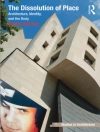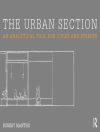The past two decades have witnessed a resurgence of ecological ideas and ecological thinking in discussions of urbanism, society, culture, and design. The field of ecology has moved from classical determinism and a reductionist Newtonian concern with stability, certainty, and order in favor of more contemporary understandings of dynamic systemic change and the related phenomena of adaptability, resilience, and flexibility. But ecology is not simply a project of the natural sciences. Researchers, theorists, social commentators, and designers have all used ecology as a broader idea or metaphor for a set of conditions and relationships with political, economic, and social implications.
Projective Ecologies takes stock of the diversity ofcontemporary ecological research and theory–embracing Felix Guattari’s broader definition of ecology as at once environmental, social, and existential–and speculates on potential paths forward for design practices. Where are ecological thinking and theory now? What do current trajectories of research suggest for future practice? How can advances in ecological research and modeling, in social theory, and in digital visualization inform, with greater rigor, more robust design thinking and practice?
New original essays by Peter Del Tredici, Erle Ellis, Christopher Hight, Sanford Kwinter, Sean Lally, Nina-Marie Lister, Chris Reed, Jane Wolff
Reprinted/excerpted essays by Robert Cook, David Fletcher, Richard T.T. Forman, C.S. Holling.
With drawings by, Gross.MAX, James Corner, Field Operations, Sean Lally, Anuradha Mathur and Dilip Da Cunha, OMA, Stoss Landscape Urbanism, West 8.
Chris Reed
Projective Ecologies [EPUB ebook]
Projective Ecologies [EPUB ebook]
Dieses Ebook kaufen – und ein weitere GRATIS erhalten!
Sprache Englisch ● Format EPUB ● Seiten 380 ● ISBN 9781945150364 ● Dateigröße 75.8 MB ● Herausgeber Chris Reed ● Verlag Actar D ● Ort New York City ● Land US ● Erscheinungsjahr 2014 ● herunterladbar 24 Monate ● Währung EUR ● ID 5222847 ● Kopierschutz Adobe DRM
erfordert DRM-fähige Lesetechnologie












